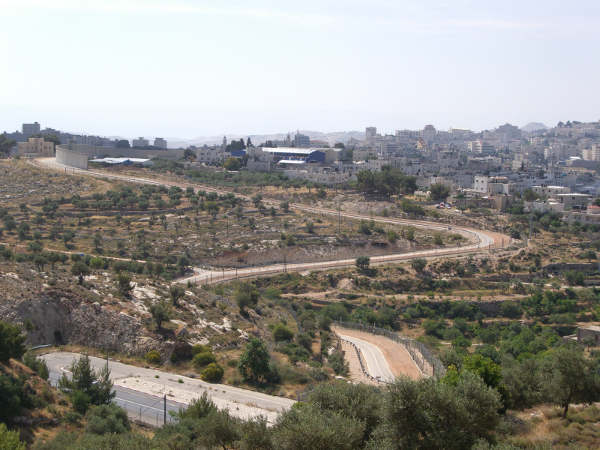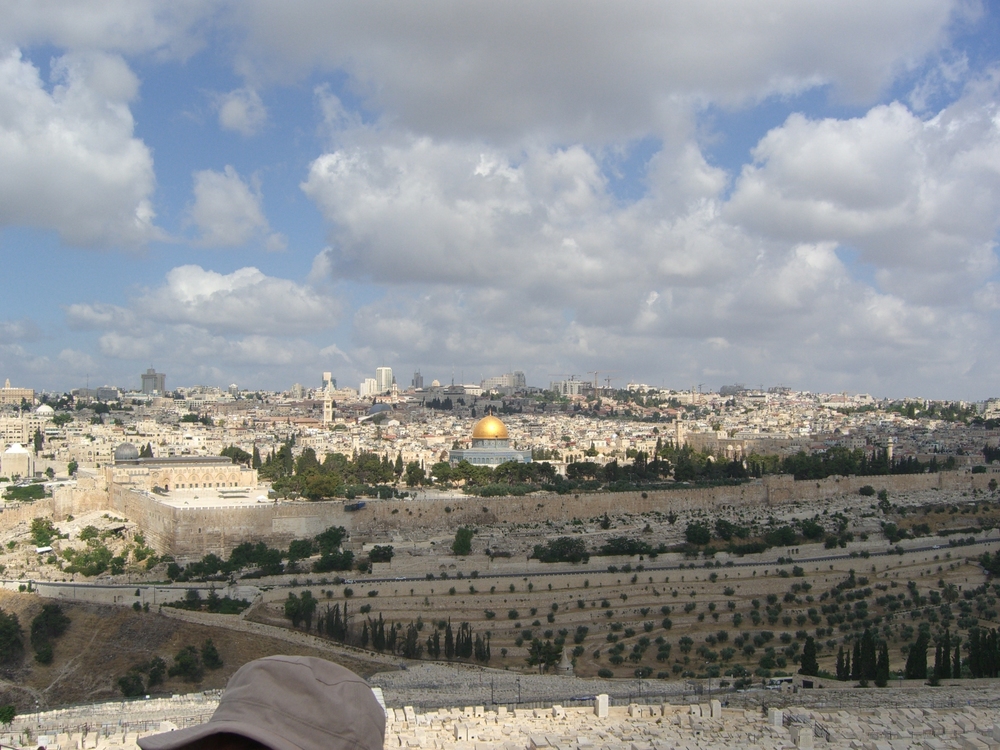David Sedaris had moved from New York to Paris and was taking French lessons. One day, when the Italian nanny was attempting to answer the tacher’s latest question, the Moroccan student interrupted, shouting, “Excuse me, but what’s an Easter?”
It would seem that despite having grown up in a Muslim country, she would have heard it mentioned once or twice, but no. “I mean it,” she said. “I have no idea what you people are talking about.”
The teacher called upon the rest of us to explain. The Poles led the charge to the best of their ability. “It is,” said one, “a party for the little boy of God who call his self Jesus and… oh, sh*t.” She faltered and her fellow countryman came to her aid.
“He calls his self Jesus and then he die one day on two … morsels of … lumber.”
The rest of the class jumped in, offering bits of information that would have given the pope an aneurysm.
“He die one day and then he go above of my head to live with your father.”
“He weared of himself the long hair and after he die, the first day he come back here for to say hello to the peoples.”
“He nice, the Jesus.”
(…) Part of the problem had to do with vocabulary. Simple nouns such as cross and resurrection were beyond our grasp, let alone such complicated reflexive phrases as “to give of yourself your only begotten son.” Faced with the challenge of explaining the cornerstone of Christianity, we did what any self-respecting group of people might do. We talked about food instead.
“Easter is a party for to eat of the lamb,” the Italian nanny explained. “One too many eat of the chocolate.”
“And who brings the chocolate?” the teacher asked.
I knew the word, so I raised my hand, saying, “The rabbit of Easter. He bring of the chocolate.”
“A rabbit?” The teacher, assuming I’d used the wrong word, positioned her index fingers on top of her head, wriggling them as though they were ears. “You mean one of these? A rabbit rabbit?”
“Well, sure,” I said. “He come in the night when one sleep on a bed. With a hand he have a basket and foods.”
The teacher sighed and shook her head. (…) “No, no,” she said. “Here in France the chocolate is brought by a big bell that flies in from Rome.”
I called for a time-out. “But how do the bell know where you live?”
“Well,” she said, “how does the rabbit?”
(…) Over time it became impossible to believe that any of us would ever improve. (…) It was mid-October when the teacher singled me out, saying, “Every day spent with you is like having a caesarean section.” And it struck me that, for the first time since arriving in France, I could understand every word that someone was saying.
(…) The teacher continued her diatribe and I settled back, bathing in the subtle beauty of each new curse and insult.
“You exhaust me with your foolishness and reward my efforts with nothing but pain, do you understand me?”
The world opened up, and it was with great joy that I responded, “I know the thing that you speak exact now. Talk me more, you, plus, please, plus.”
David Sedaris’s story, Me Talk Pretty One Day, sheds little light on Easter, but it does illuminate just how difficult it is to learn a new language and translate one’s culture into the language and world of another.
Paul struggled with translation. Just about everybody in Corinth spoke Greek, as did Paul, so that wasn’t the issue. The problem was using eloquent, sophisticated speech to talk about the cornerstone of faith, the death and resurrection of Jesus Christ.
Corinth was a cosmopolitan city. Situated between two sea ports, it was an economically vibrant and culturally diverse community where countless languages were spoken, traditions mixed and mingled, and all manner of goods, services, and ideas were exchanged. The young church in Corinth was a microcosm of the city, but things didn’t mix and mingle well. Competition among members had plunged the community into conflict. Some said they belonged to Apollos, others to Cephas, and still others to Paul. Each faction praised the theological acumen of their respective apostle or teacher while disparaging the others, significantly bolstering their own egos in the process, since they were the ones recognizing true greatness!
Corinth was a hub in the Roman Empire, and Corinthians were involved in global trade and imperial politics. Among the elites, rhetoric was a major part of education; in business and in public life in general one had to know how to sway others with the right word at just the right time. People quickly identified eloquence and cleverness of speech with power, wealth, and success. Correspondingly, the lack of refined and polished speech indicated low status. In Corinth and in other cities of the empire, Me Talk Pretty One Day was a line about upward mobility, about success and belonging. Clever speech was seen as a ticket to the top, and great orators were celebrated like rock stars.
Apollos apparently was a much more impressive speaker than Paul, and so a heated debate erupted in the church over who was more eloquent and hence the greater apostle. Paul was out of town, but had heard about the divisions and wrote a letter to the church.
“So, I understand some among you shout, ‘I belong to Paul,’ and others, ‘I belong to Apollos;’ and still others, ‘I belong to Cephas.’ Who then is shouting, ‘I belong to Christ?’ Huh?—Was Paul crucified for you, or were you baptized in Paul’s name?”[1] He could have borrowed a line from David Sedaris’s French teacher and sighed, “You exhaust me with your foolishness and reward my efforts with nothing but pain, do you understand me?” Except that Paul wasn’t exhausted by their foolishness, but by their loveless ways and their insistence on using what passed for wisdom to judge the meaning of Jesus. Against their waves of clever speech, Paul held up a single word: the cross.
“When I came to you, brothers and sisters, I did not come proclaiming the mystery of God to you in lofty words of wisdom. For I decided to know nothing among you except Jesus Christ, and him crucified.”[2]
Centuries of use as a religious symbol have dulled the impact of the words cross and crucifixion. The cross has all but lost its power to scandalize, but not so in Paul’s day. As a particularly horrible form of public torture and execution in the Roman Empire, crucifixion was designed to demonstrate that nothing but complete surrender to the power of Rome would be accepted. Crucifixion was reserved for non-citizens, for slaves, prisoners of war, and insurgents—anyone who threatened the divinely sanctioned order of Rome. The cross was an instrument of degradation, humiliation, and shame, and crucifixion an obscenity not to be discussed in polite company. Cicero, one of the great Roman orators, was defending a senator against a murder charge. The prosecutor was seeking the death penalty and was apparently suggesting crucifixion. Cicero declared, “The very word ‘cross’ should be far removed not only from the person of a Roman citizen, but from his thoughts, his eyes, his ears.”[3] And that very word ‘cross’ is what Paul holds up for all in Corinth to see.
Years ago, a young friend of mine was shocked by the sudden realization that the cross was an instrument of torture and execution. “Isn’t that like putting an electric chair in the middle of the chancel,” he asked. “Isn’t that like hanging a noose above the baptistry?” Degrading, humiliating, and shameful. Crucifixion was designed to demonstrate publicly that any attempt to defy the powers that be was futile. Paul, however, declares that far from proving the sovereignty of Roman political order, the crucifixion of Jesus has shattered the logic of power. Humble obedience to the God who loves even the enemies of God has broken the logic of power. Paul’s gospel is a scandal, an insult to the sensibilities of educated men and women, an ugly interruption of any polite conversation about politics, the law, or religion where everything is in its proper place. Paul proclaims Jesus Christ, and him crucified. He does not make pretty talk of the cross, or clever talk. He holds it up. He holds it up until we see how the cross disrupts everything we think we can say about the divine, or about justice, or power, or love.
We want signs. We want God to do something big and spectacular, something like a Super Bowl of truth where Jesus wins 40:0 while the whole world is watching; instead we must look at the cross. We want wisdom. We want the gospel to be philosophically elegant and aesthetically pleasing; instead we must listen to the cross.
The power of God is both hidden and revealed in the cross: Where we expect power, weakness is given. Where we expect wisdom, foolishness is given. God acts to judge and save us in ways that subvert our ways of knowing and doing.
Around the cross, God gathers a community shaped by the love and obedience of Jesus Christ, a community of mercy. In the world as we know it, power is the ability to inflict suffering or escape from it, and all our knowing and doing serves to gain and maintain that power. But the God who hides and meets us in the cross of Jesus Christ is not part of the world as we know it. The cross marks the end of the world as we know it and the beginning of the world redeemed by God, the world where mercy reigns.
As a people gathered around the cross we no longer outmaneuver, outsmart, or outtalk each other in the race to the top; our life has a new direction: we walk together in the way of Christ, sent as ambassadors of reconciliation to the places where our loveless ways have fractured life. We let the mercy of God translate all that we are, our thinking and speaking, our sufferning and our doing into wholeness.
[1] 1 Corinthians 1:11-13
[2] 1 Corinthians 2:2
[3] The Speech In Defence of Gaius Rabirius, sec. 16






